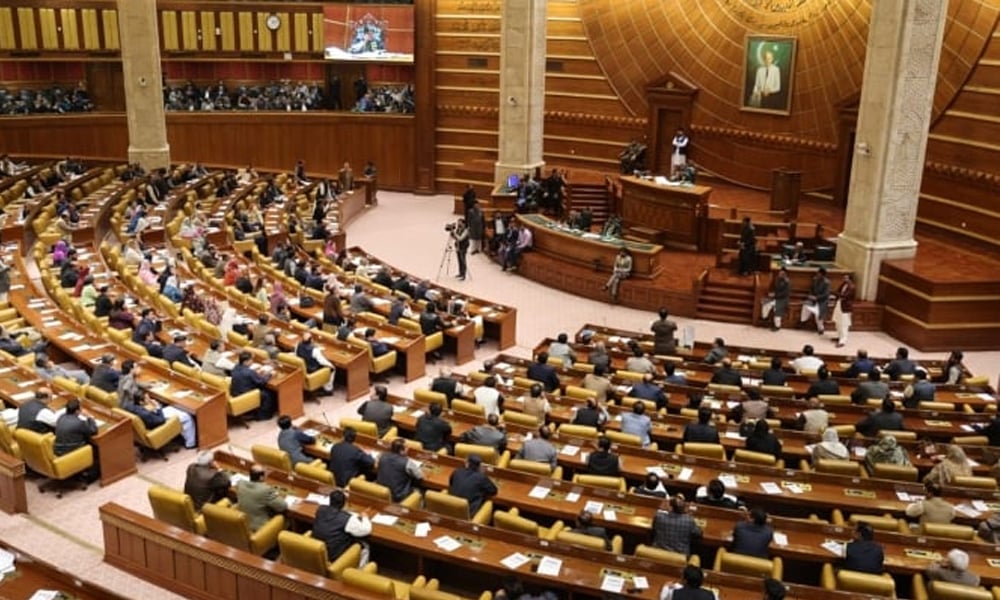PTBP Web Desk
The Punjab Assembly has passed the Punjab Agricultural Income Tax Bill 2024. This legislative move is aimed at ushering in comprehensive reforms in the agricultural sector, but not without significant contention, especially from the Punjab government’s coalition partner, the Pakistan Peoples Party (PPP).
The session, under the stewardship of Speaker Malik Muhammad Ahmad Khan, saw a variety of bills being discussed and passed. However, the spotlight was undeniably on the Punjab Agricultural Income Tax (Amendment) Bill 2024. Despite the PPP’s vehement opposition, the bill was passed with a majority vote. This approval came after the government accepted all amendments suggested by the opposition, highlighting a moment of bipartisan agreement amidst overall discord.
The PPP, led by Ali Haider Gillani in the assembly, was not satisfied with the government’s approach. Gillani argued that the PPP was not taken into confidence regarding the bill, which led to their dramatic walkout from the session. He criticized the bill, labeling the agricultural income tax as an “economic murder” of the farming community, indicating the party’s belief that the legislation would adversely impact farmers’ livelihoods.
In response to the criticisms, Parliamentary Affairs Minister Mian Mujtaba Shuja-ur-Rehman articulated the government’s perspective. He defended the bill by stating that it was designed to modernize and support the agricultural and livestock sectors. The minister assured that the reforms would ultimately benefit Punjab’s farmers by creating a more structured and supportive taxation environment.
Farmers with incomes below PKR 1.2 million will be subject to a fine of PKR 10,000 for late payment.
Those earning less than PKR 40 million will face a penalty of PKR 25,000.
High-income earners above PKR 40 million will incur a fine of PKR 50,000 upon late payment.
Super Tax: A super tax will be imposed on high-income farmers, aiming to redistribute the tax burden more equitably.
Alongside the agricultural tax bill, the Punjab Assembly also passed the Registration Amendment Bill 2024. Another significant change was the approval of rules allowing the Chief Minister’s Advisor to speak in the House, indicating a move towards more inclusive legislative dialogue.
The passage of the bill, despite the PPP’s opposition, underscores a rift within the ruling coalition. This dissent could have broader implications on the political landscape, especially concerning future legislative collaborations. The PPP’s walkout and strong stance against the bill reflect not only their disagreement on policy but also highlight the challenges of maintaining coalition solidarity in the face of significant legislative reforms.




